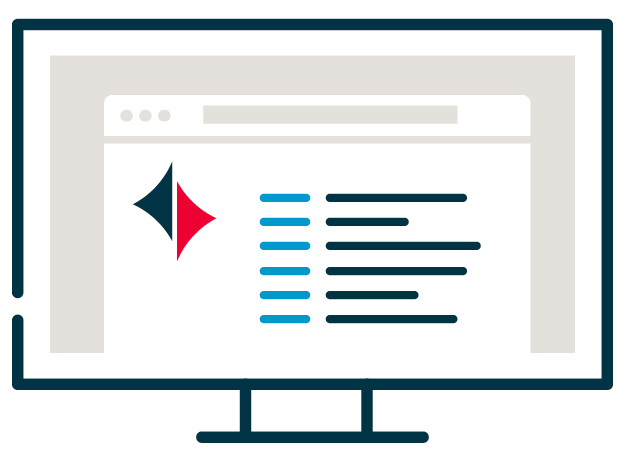How Much Money Should You Keep in Cash?
An adequate emergency fund helps provide both security and flexibility.
We’re living through interesting economic times. On the one hand, markets can be unpredictable and volatile. On the other hand, economic conditions are constantly changing. More than ever, people are asking: “How much money should I keep in cash?”
Believe it or not, the answer is the same in turbulent times as it is in relatively calm periods. And it’s the same regardless of how “cautious” or “risky” your investment style might be. When it comes to how much you should keep in cash, you don’t want too much or too little — you want a “just right” amount based on your own budget and financial goals.
Source: BlackRock DC Pulse Survey. 2021: Merril Lynch, “Women & Financial Wellness: Beyond the Bottom Line,” 2021.
The Importance of Cash in Your Portfolio
Cash serves as the foundation of a solid financial plan. It can provide liquidity, safety, and confidence. Having cash on hand can help you manage everyday expenses, handle emergencies, and take advantage of investment opportunities without the need to sell off other assets.
Finding the “Just Right” Amount
Emergency Fund: Financial professionals typically recommend having three to six months’ worth of living expenses in an emergency fund. This ensures that you have enough to cover unexpected expenses like medical bills, car repairs, or temporary loss of income. If your job is less stable or you have dependents, consider aiming for six to twelve months’ worth of expenses.
Short-Term Goals: If you have short-term financial goals, such as buying a house, taking a vacation, or making a large purchase within the next year or two, it’s wise to keep that money in cash. This way, you won’t have to worry about market fluctuations affecting your ability to reach those goals.
Peace of Mind: Some people prefer to keep a little extra cash on hand simply for peace of mind. This isn’t necessarily about financial logic but rather about emotional comfort. If having an additional cushion makes you feel more secure, it’s worth considering.
Balancing Cash with Investments
While it’s important to have enough cash to cover your bases, keeping too much in cash can also be detrimental. Cash typically earns very low returns compared to investments like stocks or bonds, meaning you could be missing out on potential growth. Here are a few tips to help you find the right balance:
- Assess Your Risk Tolerance: Your risk tolerance should guide how much you keep in cash versus investments. If you’re more risk-averse, you might prefer to keep a bit more in cash. If you’re comfortable with risk, you might lean towards investing more of your money.
- Diversify Your Investments: Diversification can help manage risk while aiming for growth. By spreading your investments across different asset classes, you can potentially mitigate the impact of market volatility.
- Regularly Review Your Financial Plan: Economic conditions and personal circumstances change, so it’s important to review your financial plan regularly. Make adjustments as needed so your cash reserves and investments align with your current goals and situation.
Determining the right amount of cash to keep on hand is a personal decision that depends on your unique financial situation and goals. By maintaining an emergency fund, setting aside money for short-term goals, and balancing your cash reserves with investments, you can navigate economic uncertainties with confidence. Remember, the goal is to find that “just right” amount that provides both security and opportunity, allowing you to pursue financial stability and growth.
Investing is a journey, and keeping a thoughtful balance of cash and investments is key to reaching your destination. If you have any doubts or need personalized advice, consider consulting with a financial professional to tailor a strategy that suits your needs.
So How Much Should You Keep in Cash?
The exact amount to keep in checking and savings will be different for everyone, but it’s always the sum of three things:
- Money for Everyday Living Expenses. This is the cash you use to pay your bills and cover your everyday living expenses. It’s important to have enough in your checking account to handle your monthly outflows without dipping into your savings or investments.
- Your Emergency Fund. An emergency fund is crucial for financial stability. The exact amount you need will vary depending on your personal situation, but we typically recommend aiming for three to six months’ worth of take-home pay. If you’re self-employed or have an irregular income, consider saving up to nine months’ worth of expenses.
Keeping your emergency fund separate from other funds set aside for other goals will give you a clear picture of how much you’ve reserved specifically for emergencies. - Money Needed Within the Next Two Years. Any money you’ll need within the next two years should also be kept in cash. This includes funds for short-term goals such as vacation savings, next year’s car insurance, or any other expenses you anticipate.
Investing is a long-term game, so it’s generally better to invest money for timelines longer than two years. As you approach the last year or two of a long-term investing goal, consider withdrawing it as cash or leaving it invested in a conservative portfolio. Discuss your best next move with your financial expert to help you make the most strategic decision.
Balancing Act
Determining how much cash to keep on hand involves balancing your immediate needs, emergency preparedness, and short-term goals. By ensuring you have enough for everyday expenses, an adequate emergency fund, and funds for short-term goals, you can pursue a balance that provides both security and flexibility. This approach allows you to navigate economic uncertainties and work toward your financial goals with confidence.
Important Disclosures:
The opinions voiced in this material are for general information only and are not intended to provide specific advice or recommendations for any individual. To determine which investment(s) may be appropriate for you, consult your financial professional prior to investing.
Investing involves risks including possible loss of principal. No investment strategy or risk management technique can guarantee return or eliminate risk in all market environments.
There is no guarantee that a diversified portfolio will enhance overall returns or outperform a non-diversified portfolio. Diversification does not protect against market risk.
This article was prepared by FMeX.
LPL Tracking #596440



